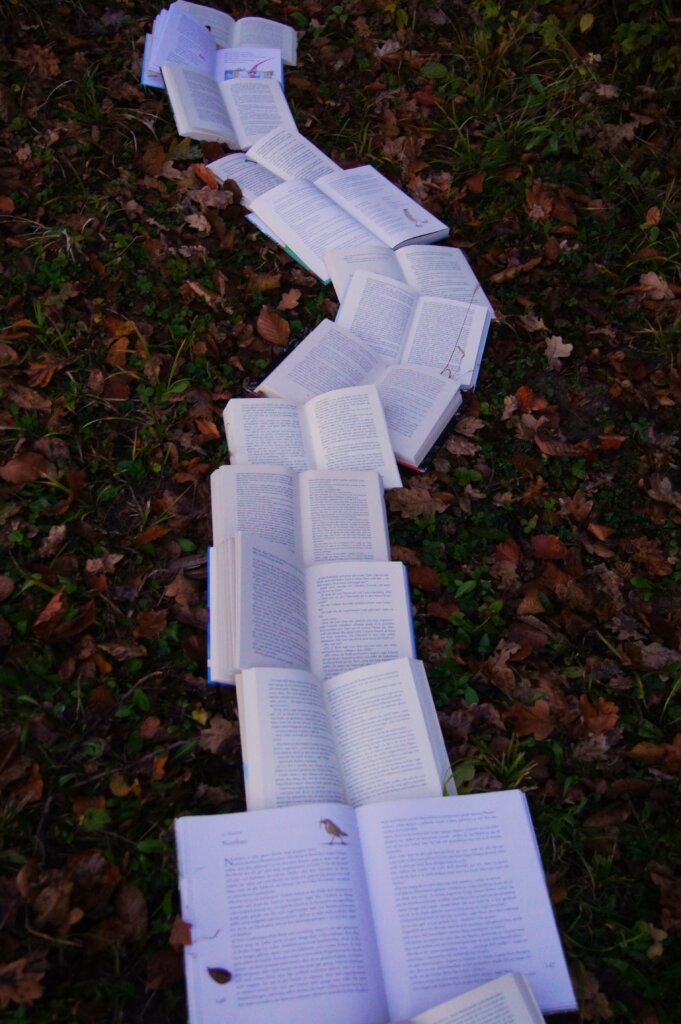6th November 2023
Listen
Listen

Opinion pieces are the view of the author and in no way reflect the views of Liverpool Guild Student Media or Liverpool Guild of Students.
For as long as I can remember, I have had to read novels that I have no care for. Despite this, I love to read. I love reading all forms of literature, from poetry to prose (although I definitely can’t say poetry is my favourite). It’s natural to lean towards one form more than others, one writer more than others. However, surely reading literature that we don’t particularly enjoy (and maybe even can’t stand) can also be beneficial?
My go-to example would be in education. The literature we are subjected to, particularly in our youth, is mostly selected via our curriculum. Without this input, some people may not choose to read for leisure.
In my experience, as much as I adore the works of Charles Dickens, there are only so many times that you can read A Christmas Carol without losing the will to live. My GCSE English teacher (the main influence on my choice to do a Literature degree) had us read and re-read the novel, over and over. We must have watched almost every film adaptation. By the end of it, between the class, we probably could have recited the whole novel. It would be fair to say that the class hated Dickens by the end of our exams. However, this is not to say that reading it didn’t come with many advantages.
Dickens’s exploration of social class boundaries, in the Victorian era, provides a didactic commentary on society. This is equally beneficial for two reasons: it provides historical context for the time and it addresses that those in wealth have a social responsibility for those in poverty. This is a fundamental idea that is still relevant to this day, even more so at Christmas time. The moral ‘do good and receive good’ is prevalent within the novel (and by extension society) – which is just part of the reason why A Christmas Carol is timeless.
Not only does reading books we don’t necessarily like teach us valuable lessons, but also makes us more informed readers. There’s nothing that I hate more than a book that takes more than four chapters to build the background story. So bibliophiles (like me) will know exactly how delighted I was when reading Jane Eyre, in my first university semester. Hopefully, you sense my sarcasm there. Charlotte Bronte writes twelve chapters before even getting Jane to Thornfield, where she meets Mr Rochester. TWELVE CHAPTERS. Naturally, there is a lot to discuss within these twelve chapters, but the real action begins to unfold after the twelfth chapter. Despite this, I think it would be unjust to say that reading these twelve chapters was not beneficial to my understanding of the overall novel, or my understanding of the place of Jane Eyre in the feminist canon.

Another instance is reading Joseph Conrad’s Heart of Darkness. All that comes to mind with this novel is complexity. Nonetheless, it is still a revolutionary piece of the Literary Canon. Did I enjoy reading it? Absolutely not. If I’m being completely honest, I have no recollection of reading it. I know I did read it because I had to do it twice to grasp a full understanding, but I have no recollection of any quotes from the text. It’s safe to say, I had no intention of completing my assignment on this novel. However, reading it gave me an insight into the period of Early Modernism. Conrad’s intention is to make this novel difficult to read – like we are fighting through the jungle, like the characters. The deep exploration of the depths of human depravity is helpful for Literature students to evaluate the concepts of psychogeography on the mind – therefore, as much as I hated it, reading it did benefit my education.
Despite the complexities and boredom surrounding reading the books that we hate, they are helpful. They allow us to understand the times in which they were written, and the authors who wrote them. Moreso than anything, they give us a vital understanding of the literature that we do enjoy. Jane Eyre is one of my favourite novels. Did I enjoy how long it took to build? No. The same questions can be applied to Jane Austen’s literature. The entire plot of Emma could be condensed into around five or six chapters – rather than fifty-five. The building of the essential backstory seems to take my favourite writers longer than the actual plot of their novel, perhaps that’s what I like about them. Do I like it at the time, though? Absolutely not.
Featured Image Credit: Photo by Jaredd Craig on Unsplash